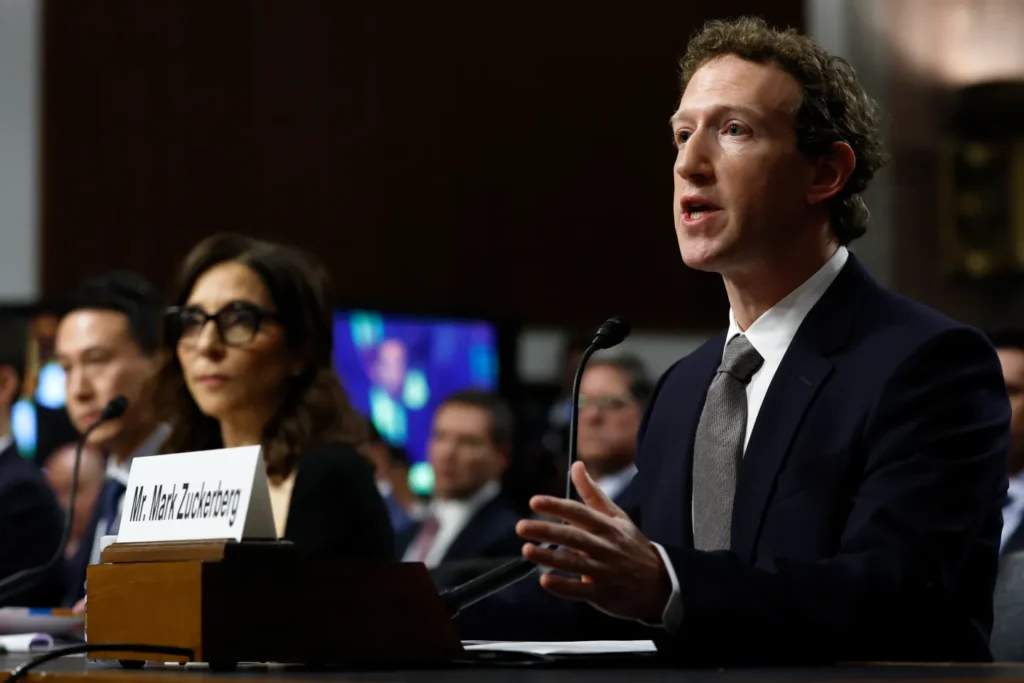
Meta CEO Mark Zuckerberg returned to the witness stand on Tuesday for a second day in a landmark U.S. antitrust trial that could force the tech giant to divest Instagram and WhatsApp — two of its most prized acquisitions.
The trial, underway at a federal court in Washington, D.C., centers on allegations that Meta, formerly Facebook Inc., strategically acquired rising rivals to stifle competition and secure its dominance in the social media space.
Originally filed by the Federal Trade Commission (FTC) in December 2020 during the Trump administration, the case has since evolved into one of the most consequential antitrust challenges facing Big Tech in the U.S. Hopes that a second Trump presidency might ease regulatory scrutiny have so far failed to materialize.
At the heart of the FTC’s complaint is Meta’s $1 billion acquisition of Instagram in 2012 and its $19 billion purchase of WhatsApp in 2014. Regulators argue that both deals were not merely growth strategies but calculated moves to eliminate potential threats before they matured into full-fledged competitors.
The FTC presented internal communications, including a now-infamous email from Zuckerberg describing Instagram’s rise as “really scary” and suggesting it might be worth “paying a lot of money for this” to neutralize the threat.
Zuckerberg, the world’s third-richest person, downplayed the remarks during his testimony, calling them early brainstorming before a coherent vision for Instagram emerged. Meta’s legal team insists that the company invested heavily to build Instagram and WhatsApp into global platforms and that their continued growth is the result of innovation, not monopolistic intent.
In court, Meta’s lawyers emphasized that its platforms remain free for users and face stiff competition from rivals like TikTok, YouTube, X (formerly Twitter), and Apple’s iMessage — undermining claims of market dominance.
However, the FTC has framed the debate differently, arguing that Meta dominates a narrower category: apps specifically designed for connecting with friends and family — a space where Instagram and Facebook hold significant sway, excluding platforms like TikTok and YouTube that serve broader entertainment functions.
FTC attorney Daniel Matheson stated during opening arguments: “They decided that competition was too hard and it would be easier to buy out their rivals than compete with them.”
Meta’s lead counsel, Mark Hansen, countered that “acquisitions made to improve and grow an acquired firm are not unlawful,” defending the deals as legitimate business decisions under U.S. law.
As the trial unfolds, much will depend on how the court ultimately defines Meta’s market and assesses its competitive behavior. A ruling against Meta could result in a historic breakup of its core platforms — a move that would send shockwaves through Silicon Valley and beyond.
